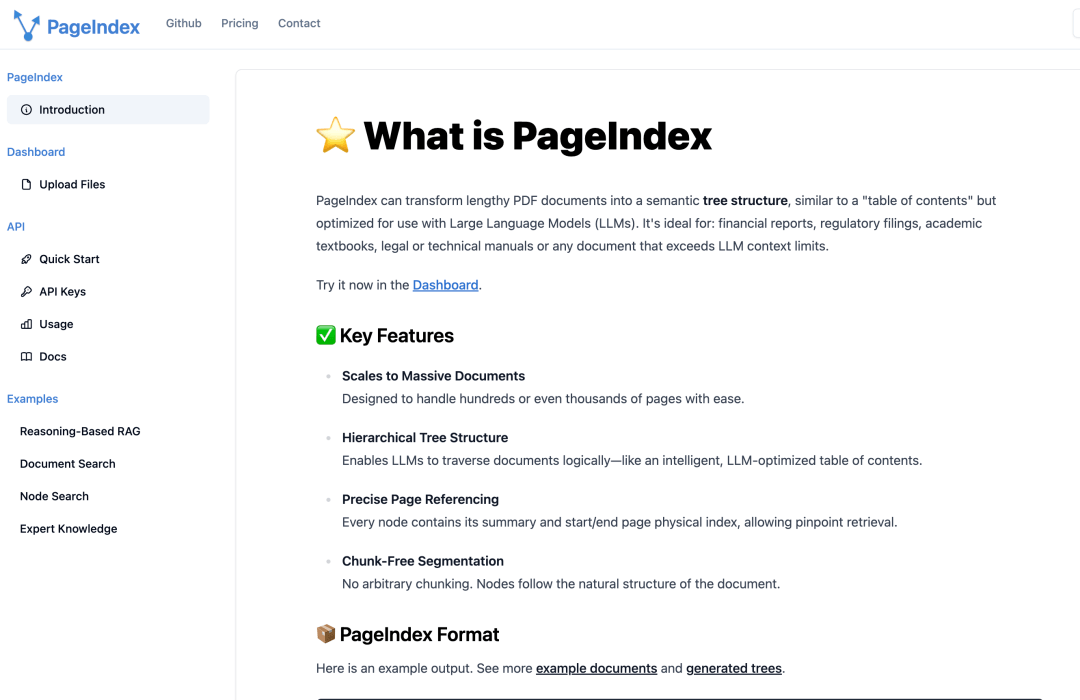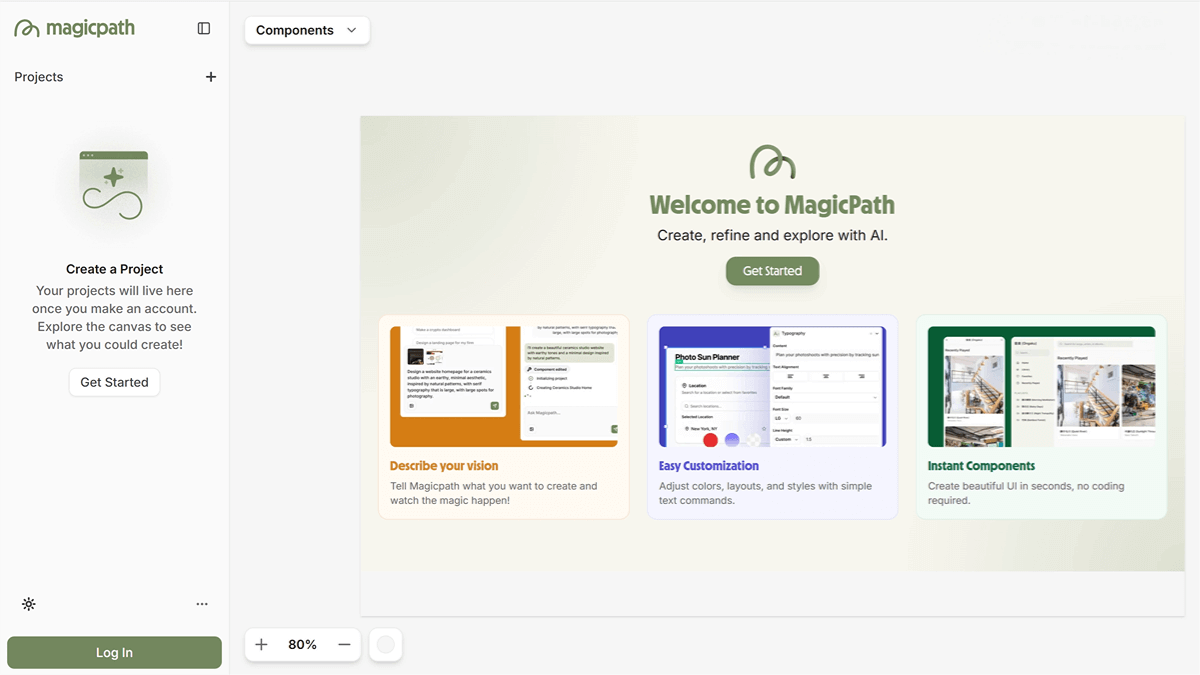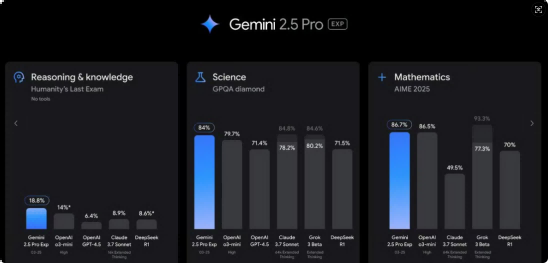PageIndex: A Reasoning-Based RAG Retrieval Engine for Specialized Documents
📌 What is PageIndex?
PageIndex is an open-source document indexing system designed to enhance the retrieval accuracy of RAG (Retrieval-Augmented Generation) models when handling complex, domain-specific documents. It introduces reasoning capabilities into the retrieval process by employing a tree search strategy that simulates the inference path of large language models (LLMs), enabling more precise retrieval of relevant document segments.

🔍 Key Features
-
Reasoning-Driven Retrieval Mechanism:
Utilizes a tree search strategy to guide LLMs through structured documents, enabling multi-step reasoning to locate the most relevant content. -
Structured Document Indexing:
Supports indexing of long-form documents in a structured way, improving both retrieval efficiency and accuracy. -
Multimodal Data Support:
Compatible with various data formats, including text, PDFs, and audio, addressing diverse application needs. -
Integration with Leading LLMs:
Seamlessly integrates with major LLM providers such as OpenAI and Mistral, enhancing the generation quality and performance.
⚙️ Technical Overview
Traditional vector-based retrieval methods rely heavily on semantic similarity, often overlooking deeper contextual and logical relationships within documents. PageIndex adopts a tree search strategy similar to that used in AlphaGo, allowing the model to perform step-by-step reasoning through the document’s structure. This not only increases retrieval accuracy but also improves the generation capabilities of the language model by providing more relevant context.
🔗 Project Links
-
GitHub Repository: https://github.com/VectifyAI/PageIndex
🌐 Application Scenarios
PageIndex’s architecture lends itself well to a wide range of use cases:
-
Legal Document Analysis:
Processes complex legal materials such as contracts and court rulings, improving retrieval and analytical workflows. -
Medical Research:
Analyzes academic papers and case reports to support clinical decision-making and medical study. -
Financial Report Interpretation:
Extracts insights from financial statements and market analyses, aiding investment strategies. -
Enterprise Knowledge Management:
Builds structured internal knowledge bases for companies, boosting information retrieval and utilization efficiency.
Related Posts




